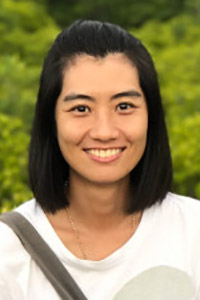Some 12th-grade students may have been up several nights awaiting the announcement of the Thai University Central Admission System late last month. My ex-colleague's daughter was one of those who were eventually admitted to Srinakharinwirot University. Others who were rejected still had a chance to win in the university's direct admission process, which will be announced later this month.
According to a report by the Ministry of Higher Education, Science, Research and Innovation and the Council of University Presidents of Thailand, Thammasat University's Allied Health Science, Burapha University's Nursing, Silpakorn University's Arts, Naresuan University's Nursing, Mahidol University's Science, Thammasat University's Law and Pharmacy, and Srisavarindhira Thai Red Crescent University's Nursing were among the top 10 most popular faculties, ranking first and second in admissions last year.
In recent years, Thai institutions have worked hard to improve their rankings in the QS World University Rankings for 2022, conducted by UK-based education and career consultancy Quacquarelli Symonds (QS).
The universities were rated according to six components: academic reputation (40%), employer reputation (10%), faculty-student ratio (20%), citations per faculty (20%), international faculty ratio (5%) and international student ratio (5%). After surveying 130,000 academics' responses and nearly 75,000 employers, QS rated 1,300 universities from around the world based on reputational indicators. It also analysed more than 18 million research papers and more than 130 million citations from the Scopus/Elsevier database.
According to the report, Chulalongkorn University has dominated the Thai University pool over the past decade, ranking 215th, followed by Mahidol University (255th), and Thammasat University (in the 601-650 group).
The other five Thai universities on the list include Chiang Mai University in the 601-650 range, and Kasetsart University, King Mongkut's University of Technology Thonburi, Khon Kaen University, and Prince of Songkla University in the 801-1,000 range.
At the same time, the top five universities in the world are the Massachusetts Institute of Technology (MIT), University of Oxford, Stanford University, University of Cambridge and Harvard University. The top three universities in Asia are the National University of Singapore, Peking University, and Nanyang Technological University, ranked 11th, 12th, and 18th, respectively.
However, someone is attempting to create a new norm that will create equality in Thai culture. Last week, Pua School in northern Nan made headlines on social media when it announced a new school policy stating it would not support societal ideals such as celebrating only students who were admitted to some of the country's top medical, dental, and engineering colleges.
According to the school, these professions aren't the only ones that have driven the country forward. This is an antiquated cultural ideal as all students are the school's produce. Whatever they are, everyone should be praised. This highlights the school encouraging students to focus on their own self-esteem rather than the institution's reputation and performance.
Everyone has their own goals, set of abilities and different living conditions, but not everyone is able to enrol in tuition courses to improve their chance of getting into college. In 2017, the Thai University Central Admission System was designed to replace the central university admission system, with the goal of preventing students from applying to several institutes and reserving places they would have missed. Applicants who have previously got a seat in a prior round will not be permitted to participate in a subsequent round.
All students experienced challenges during the Covid-19 pandemic once schools went digital, with daily online lessons. The outbreak not only disrupted health and economic systems but also had a two-year impact on students and school planning.
Simultaneously, this circumstance revealed more about Thailand's educational disparities. Not everyone, especially those living in rural regions, has a smartphone and computer or access to the internet and technology.
According to the most recent data from the Office of Basic Education, more than 150,000 of the 6.6 million school-aged children in Obec-run schools are non-Thais. Providing educational accessibility is a way to improve people's quality of life. Some schools have created training programmes that combine academic and practical skills so that students may apply what they've learned in the classroom to their daily lives.
College is not the end of the road but the beginning. Getting a good score at university, on the other hand, does not ensure success in a career. The prestige of the school is less essential than your ability to apply what you've learned in the actual world.
Pattarawadee Saengmanee is a feature writer for the Life section of the Bangkok Post.
